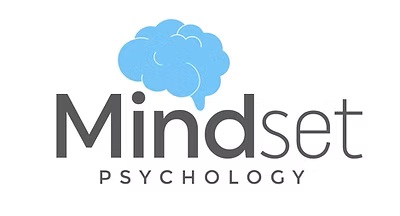Clinical psychology is a comprehensive and extensive speciality that incorporates human behavioral theories, mental health care, psychological assessment, research, and consultation in order to better understand distress and dysfunction and promote well-being. In terms of mental health care, clinical psychology offers treatments for not only the individual, but for communities of all different ages and backgrounds. It is important to understand what to expect from a clinical psychologist as you consider how their methods of service and care apply to your specific needs. In a diverse city like New York, there is a plethora of clinical psychologists with differing skill sets and concentrations.
This guide will provide detailed information to help you navigate how clinical psychology may be applied to you and your concerns as a client. A multitude of therapeutic approaches utilized in clinical psychology will be discussed to prepare you for the potential methods of treatment that work best for you and your situation during treatment.
Who is a Clinical Psychologist?
A clinical psychologist is a “mental health professional with highly specialized training in the diagnosis and psychological treatment of mental, behavioral and emotional illnesses” (Kelly, 2023). Although they are technically not medical doctors, clinical psychologists follow similar education paths that often result in a doctorate degree. As opposed to licensed social workers and therapists, clinical psychologists must obtain a doctorate degree in clinical psychology before meeting with and treating clients. However, in some regions of the United States, a master’s degree is sufficient. It is important to go over your specific state’s requirements for clinical psychologists before committing yourself to one. Although not required, the American Board of Clinical Psychology (ABCP) offers board certification for clinical psychologists, which recognizes skills like “being aware of ethical and legal principles and employing them effectively, understanding different scientific disciplines that relate to psychology and how they may impact treatment” and more (Kelly, 2023).
Only a few states permit clinical psychologists with authorization to prescribe medications for clients. Instead, the vast majority of clinical psychologists implement therapeutic approaches like CBT (cognitive behavioral theory) and psychoanalysis. In terms of the skills that clinical psychologists specialize in, most are proficient in counseling services for groups of different mental and even physical health issues in institutions like hospitals, group or private health care practices, schools, counseling centers, and more. According to the American Psychological Association, some clinical psychologists choose to specialize in treating those struggling with “chronic illnesses such as obesity or diabetes, specific psychological disorders, such as anxiety, schizophrenia or depression, and school children who have learning disabilities or in college counseling centers to promote wellness and academic success” (APA, 2014). Clinical psychologists may also conduct psychological evaluations, which may be utilized to “help diagnose and treat mental health conditions” through the use of surveys, medical exams, clinical interviews, observational data, previous educational and medical history, and more (Stiles, 2021). This information is very useful in navigating which therapeutic approach is the most effective and relevant for your specific needs as a client.
Common Therapy Approaches Used by Clinical Psychologists
CBT, or cognitive behavioral therapy, is one of the most practiced and researched approaches in the world of psychology today. CBT is a structured, goal-oriented form of psychotherapy that focuses on changing negative thought patterns and behaviors. The main theory of CBT is that one’s thoughts, feelings, and behaviors impact one another, and that each is connected to one’s mental health and psychological processes. Mental health conditions like anxiety, depression, substance abuse, eating disorders, and more are commonly assessed and treated through CBT. Another approach is psychodynamic theory, which is a form of talk therapy focused on “learning how the person’s subconscious thoughts, feelings, and memories are affecting their current behavior” to help the client later “develop coping techniques and achieve therapeutic goals such as improving relationships and making better choices” (Cherry, 2024)
Humanistic therapy is a method that clinical psychologists also implement in their practice often. This approach centers the individual client and builds off of the foundational belief that a human is innately good. Rather than focusing on the weaknesses and the struggle a client may be experiencing in the current era of their life, a psychologist utilizing humanistic therapy emphasizes the client’s “skills and positive characteristics…to encourage people to heal and find personal fulfillment” (Cherry, 2023).
DBT, or dialectical behavior therapy, is stemmed from CBT and has proven effective on clients who experience self destructive behaviors like eating disorders and substance abuse disorders. The main goals of DBT are to “teach people how to live in the moment, develop healthy ways to cope with stress, regulate their emotions, and improve their relationships with others” (Schimelpfening, 2023). This approach includes skills like distress tolerance, which allows clients to center themselves and accept their current situation of intense emotions. Emotional regulation is a large part of treatment. Initially, DBT was developed for those with borderline personality disorder, but it has since evolved and adjusted to many other mental health conditions, as well.
EMDR, or eye movement desensitization and reprocessing, is an approach that utilizes eye movement to alleviate symptoms of anxiety and panic disorders. PTSD is the most common condition in which EMDR has been applied to. During the therapy session, the client “attends to emotionally disturbing material in brief sequential doses while simultaneously focusing on an external stimulus”, which results in “complete information processing, new learning, elimination of emotional distress, and development of cognitive insights” (Shapiro, 2001).
What to Expect During Your First Visit
A consultation is an opportunity for both the client and the psychologist to discuss and determine whether they are suitable with one another in the pursuit of effective and beneficial treatment. The client also has the opportunity to ask any questions regarding the therapy process, as well as to express their concerns and expectations. The psychologist should also evaluate the client’s specific needs and then determine whether their qualifications and expertise align with such. An intake assessment is crucial for a psychologist to fully understand the client’s current situation and history. This assessment will gather relevant information such as family history, medical history, background, current circumstances, past therapy experiences, and more. Identifying immediate crisis issues and safety risks is also important when reviewing the assessment, as signs of “suicidal thoughts, self-harm behaviors, violence, trauma, or substance abuse” (Gardner, 2023).
With this information, the psychologist is able to formulate and develop a personalized treatment plan for the client. Through a detailed psychological report, the psychologist can track the client’s progress based on the summary of findings and potential recommendations for treatment and intervention that they have noted from the initial assessment. Having this information readily available and fully understood will build and confirm trust with the client. When the relationship between the client and psychologist is full of trust and collaboration, the treatment will be more effective and secure.
Ongoing Therapy Sessions: What Happens Next?
Every therapy session is different for every client and psychologist. Typically, the client will inform the psychologist with the current situations happening in their lives, including details of relationships, work places, social setting, family dynamics, and more. Then, the psychologist will implement their expertise through therapeutic approaches to address the client’s concerns and mental blockages. Collaboration is a very important part of therapy, as it informs the psychologist of your specific needs and the correct methods of treatment in order to help the client achieve their goals. Frequency and duration of sessions are heavily based on the individual client and the issues and situations they desire to address. Certain goals require longer durations depending on the client’s current behaviors and processes of thinking and internalizing information. Feedback is also important to “have a dialogue so that the psychologist can respond and tailor your treatment more effectively” (APA, 2023).
Benefits of Seeing a Clinical Psychologist in New York
With New York being the most populated city in the country, the amount of clinical psychologists also increases in diversity of approaches and methods of treatment. Many psychologists specialize in different mental health conditions, which allows the clients of New York to assess and determine which ones suit their specific needs the best. New York is the most populated city, but it is also the most stressful one. Factors like “noise, the high cost of living, and the close quarters can all contribute to people’s overall feelings of stress” (Hess, 2024). Mental health support is available for all, no matter how small or big they may feel their problems are. In a city like New York, therapy is a great option for managing and navigating those stressors of everyday life. However, many citizens find themselves very busy with work, family, social events, and more. Teletherapy is a convenient and efficient option for those who are unable to travel to a physical office for continuing therapy sessions. Remote care is possible for those seeking it.
Choosing the Right Clinical Psychologist for You
To find the right clinical psychologist for you, evaluate your goals and have a clear picture of what you want to achieve. Ask yourself questions like, how do I want my life to look after completing therapy? What changes do I want to make? These clarifying questions will make researching your specific psychologist easier as you attend consultations where you should clearly express your goals. A psychologist will then be able to accurately determine whether your needs will be satisfied based on their qualifications, specialization, and experience.
How Mindset Psychology Supports Clients in New York
Mindset Psychology consists of a highly trusted and qualified team of clinical psychologists that are determined to address specific conditions and situations of their clients in a mindful and effective manner. With many years of experience and expertise, we offer a variety of therapy approaches including CBT, DBT, and EMDR in order to tailor our methods of treatment to you. Visit Mindset Psychology | Psychologist In New York NY today to schedule your consultation and learn more about our clinical services.
Conclusion
To get the most out of your therapy, understand what to expect from clinical psychologists and their services. Every psychologist specializes in certain mental health conditions and utilizes certain therapeutic approaches to treat those conditions. Understand yourself and your goals by addressing your mental health concerns with professional help. Contact Mindset Psychology | Psychologist In New York NY today at (516)208-2638 to schedule your consultation and learn more about our clinical services!

